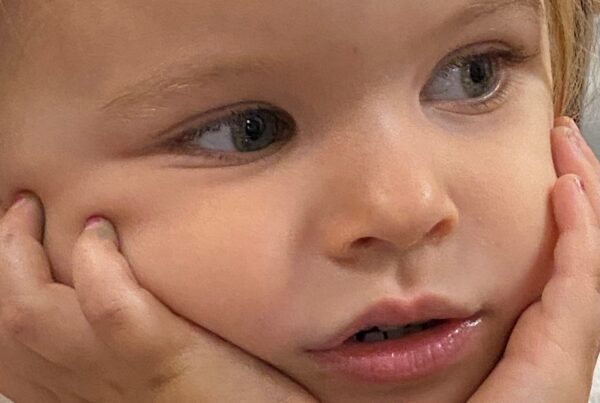By Stuart Greenbaum
Queen of selfies Kim Kardashian West made a 448-page book of selfie photos. She called it Selfish, which can only be taken literally since she’s not clever enough to be ironic and certainly not ironic enough to be clever. And, not surprisingly, it’s a bestseller. So, yeah, something’s amiss.
Remember humility, that quaint virtue from bygone days? If you don’t, blame our preoccupation with social media, reality TV and camera phones. For all practical purposes, these tools of the selfie generation have all but rendered extinct this once revered character trait.
Moreover, our increasingly narcissistic culture has – figuratively, literally and digitally – bulldozed humility, which Confucius referred to as “the solid foundation of all virtues.”
Now we’re left to wonder: Can we save humility from ourselfies, for humanity’s sake?
What’s at stake? Just about everything. For example, lack of humility in the United States with respect to international affairs — the arrogance of interfering with, imposing upon and policing other nations – has thrust us into multiple untenable and unwinnable conflicts.
Lack of humility has adversely affected humanity in countless other ways. It has turned religious beliefs into divisive political touchstones. It has further eroded what confidence remained in our elected (and campaigning) politicians. It has turned egotistical bosses into workplace bullies. Made schoolyard bullies into criminals. Superstar athletes have become disloyal and greedier than ever. Talentless celebrities have become famous for over-sharing their “thoughts” and fake body parts. And perhaps most unsettling, personal relationships have become remote, digitized and desensitized.
All the while, the value of humility is misunderstood by being wrongfully associated with passivity and submission, introversion and insecurity. To compound the depreciation, there is the inherent challenge in trying to right this misappropriation: that sticky contradiction of promoting humbleness. Left to their own devices, humilitarians must instead rely on demonstration; and use their actions to express their ideals. You are what you do not what you say. Aristotle and Ben Franklin said as much. Gandhi and Mother Theresa led by example.
(Antithetically, for the record Donald Trump, you cannot say with any credibility, “I am more humble than you even know.”) “Humility is like underwear; essential, but indecent if it shows,” author Helen Nielsen warned.
HUMILITY IS A BOUNDLESS, “HUMBLE SKY”
Humility is woefully underrated. The archetypal virtue makes the top ten of most lists. Humility (or humbleness) is considered to be as fundamental to good character as charity, diligence, patience, kindness, loyalty and truthfulness.
Webster’s defines virtue as moral excellence or quality regarded as good. For “humble,” the dictionary lists “having or showing a consciousness of one’s shortcomings; modest; and unpretentious.”
Ironically, this simple virtue also is complex, curious and fraught with contradictions.
Humility is intrinsic self-worth. Something that is much easier to fake or manufacture than to internalize. In other words, if you’re working hard at acting humble, you’re not actually humble.
Humility is genuine; founded on truth and rational thought to give proper perspective. Humble people are intrigued by and have the desire to observe, learn and reflect upon what others have to offer, what they think and feel and do. Humility is having the courtesy and patience to listen.
Humility is big-picture thinking; and cosmic perspective, knowing our humble place in time and space. It is fascination with the world around us. In the grandest scheme of things, humility is acknowledging the incomprehensibility of the universe, and accepting our collective insignificance in all that surrounds us. Admitting, too, that theories such as “infinite expansion” and “multi-verses” in essence are euphemisms for “we don’t have a clue.” Physicist Paul Davies asked in The Mind of God, “Might it not be the case that the reason for existence has no explanation in the usual sense? This does not mean that the universe is absurd or meaningless, only that an understanding of its existence and properties lies outside the usual categories of rational human thought.” For sure, to look skyward and give the mystery of farthest outer space a second thought is the foundation of humility.
“The size and age of the Cosmos are beyond ordinary human understanding,” wrote Carl Sagan in Cosmos. “Lost somewhere between immensity and eternity is our tiny planetary home. In a cosmic perspective, most human concerns seem insignificant, even petty.”
That we cannot answer this most obvious mystery, this “humble sky,” which literally belittles humankind’s very existence, is undoubtedly our most humbling reality check.
WHO GAINS FROM HUMILITY’S LOSS?
Pro athletes, celebrities and criminals shamelessly prosper from a public who condone and pay for their lack of humility.
Among the least humble individuals, by factors of arrogance and utter self-unawareness, are often extraordinarily talented and popular athletes. Tiger Woods, Floyd Mayweather, LeBron James, Bryce Harper, Serena Williams, Cristiano Ronaldo, Hope Solo, Ryan Lochte, to name a few, are unapologetic role models of self-regard and self-entitlement. Surrounded by agents and other sycophants and blindly adoring fans, humility is as foreign as failure. Football coach Barry Switzer famously mocked superstars for their lack of humility: “Some people are born on third base and go through life thinking they hit a triple.”
On balance, humble athletes do exist. At the top of this distinguished but short list may be Lou (“Today I consider myself the luckiest man on the face of the earth”) Gehrig, who managed to thrive in Babe Ruth’s shadow. Baseball’s first Jewish player Hank Greenberg and first black player Jackie Robinson were subjected to similar prejudice but both persevered and succeeded with dignity. More recently, five-time NBA champion Tim Duncan has been a model of class and appreciation for his good fortune, fame and fans. Even in retiring, he distinguished himself with a humble, 139-word thank you letter. Contrast this with another future hall-of-famer, Kobe Bryant, who felt obliged to perform in a season-long retirement tour.
Celebrities — practicing narcissists by trade — are predisposed to self-promotion and doing everything possible to avoid the appearance of it. Case in point, this typical tweet by Kim Kardashian West: “I’m freaking out! Having a fashion emergency with my Grammy dress.” Comedy writer Harris Wittels, author of Humblebrag: The Art of False Modesty, wrote this about his quest to expose false modesty: “It is most definitely a gigantic waste of time, but I think I am doing some sort of service for society – putting humblebraggers in check, so that we can get back to a time when braggers either outright bragged like assholes or just didn’t do it at all.”
Not a prosecutable offense, yet, but it’s no overreach to add to criminals’ worst traits their utter lack of humility. Consider these notoriously offensive miscreants: unrepentant convicted rapist Brock Turner, who assaulted an unconscious woman at Stanford; smug, price-gouging former drug company CEO Martin Shkreli; and poster child Ethan Couch, the teenage drunk driver who killed four people and received probation based on his “affluenza” defense.
For better and worse, there’s not enough space to discuss the abuse of humility by all the oxygen-hogging, “You are what you say, not what you do” politicians, televangelists and self-help gurus.
THE TRUTH ABOUT HUMILITY
Historically, the virtue of humility has been held in higher esteem.
Kant’s philosophical view on humility deemed possession of the virtue to be innate; that it relies on the understanding of truth and rational thought leading to proper perspective.
Gandhi also considered truth a fundamental element of humility; he believed that truth without humility is an “arrogant caricature” of truth. “It is unwise to be sure of one’s own wisdom. It is healthy to be reminded that the strongest might weaken and the wisest might err.”
C.S. Lewis wrote, “True humility is not thinking less of yourself; it is thinking of yourself less.”
Winston Churchill noted, “The greatest lesson in life is to know that even fools are right sometimes.”
Nelson Mandela offered this advice, “Lead from the back and let others believe they are in front.”
What goes away comes back, hopefully. There will always be opportunities to revive humility. If we don’t completely lose sight of what it is:
- Humility is self-confidence without conceit or hubris or being boastful.
- Humility is self-restraint and contentment.
- Humility is anonymous giving, without concern for acknowledgment or legacy.
- Humility is empathy; understanding someone’s feelings rather than feeling sorry for them.
- Humility is making genuine connections, based on mutual interest and respect.
- Humility is a product of independent self-reflection and sense of belonging.
- Humility is being selfless, not selfish, self-absorbed, self-referential or selfie-obsessed.
HUMILITY IS A CURIOUS VIRTUE
Perspective is everything. Time is the single greatest equalizer. No matter your wealth, status, intellect, athleticism or beauty, you can’t buy more of it, make it, cheat it. Everyone lives, ages and dies in a similar matter of time.
In his book, The thing about life is that one day you’ll be dead, David Shields shared these humbling numbers. Human beings have existed for 250,000 years and during this time at least 90 billion individuals have lived and died. More than 7 billion people currently live on the planet. Still, we like to think we’re special. Our parents raise us to believe we’re each individual, though technically 99.9 percent of our genes are the same as everyone else’s.
Yet we can aspire to achieve individuality without documenting every step along the way with a solipsistic selfie – a staggering 93 million are estimated to be snapped worldwide each day — or post or tweet or reality TV show. Good things, character building things, can have value without going viral.
With due humility, each of us should use the years we’re given to reflect within, not only without; to be the best one in seven billion possible before becoming one of 90 billion.
Stuart Greenbaum is founder and lead contributor to Humble Sky, a blog on culture, cosmology and philosphy. He is president of Greenbaum Public Relations in Sacramento, California, and editor of the books Longevity Rules, Media Takes: On Aging and Forgotten Victims.







Humility is tough to achieve.
This is an incredible look into humility. Each of the bullet points and quotes by Lewis, Churchill and Mandela offer hours of challenging and courageous introspection, should one venture on the task. Thank you for such rich food for thought.
I heartily second everything Tiffany said. Thank you for an insightful and thoughtful look into this fundamental virtue that is increasingly MIA.
Seems a simpler way to live, but I am aware that for those who experienced abuse in childhood humility can be difficult to achieve from an often narcissistic place. Well done Stuart!
Thanks Stu for taking the time to express your thoughts on such an important and complex subject that is so overlooked. But more importantly, thank you so much for living the walk!
Thank all of you for the thoughtful responses to this essay. It is very encouraging to know when the more challenging content resonates with others.